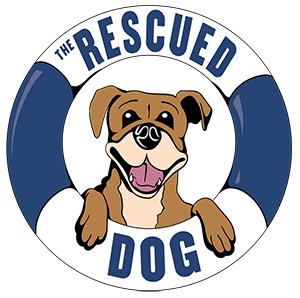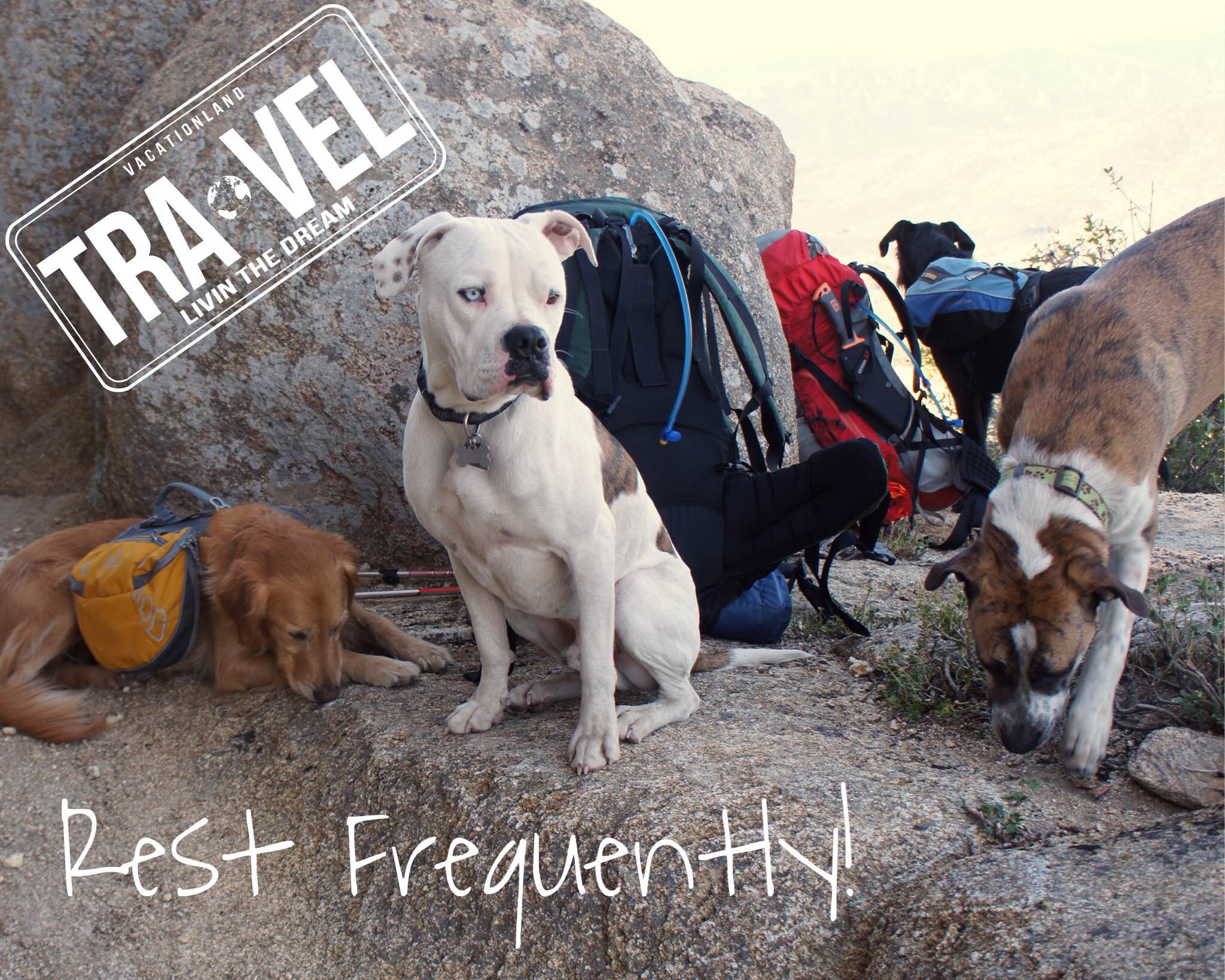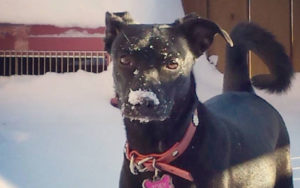One of our recently adopted dogs, Rocket, formerly known as Dermot, reached out to us to let us know that he had his very first camping trip with his new family in Santa Barbara. Along with his new brother, Rocket enjoyed the beautiful wilderness and plenty of new smells. We’re so glad that Rocket is loving his new family and embarking on so many new adventures!
Who doesn’t love the fresh mountain air, running through fields of wildflowers and swimming in lakes? Rescue dogs are the perfect camping companions for families looking to spend some time in the great outdoors. As you pack the camper (or backpack), make sure you follow the necessary steps to ensure a safe and enjoyable trip for the whole family!
-
Check your Venue
 When making camping reservations, make sure dogs are allowed. You’ll want to search for pet friendly campgrounds (and trails) to ensure a smooth camping experience. Due to insurance policies, some campgrounds have restricted certain breeds (typically “bully breeds”), so make sure to check if your dog’s breed is welcomed. Each state or national park has its own dog regulations and can be found on the individual park’s website.
When making camping reservations, make sure dogs are allowed. You’ll want to search for pet friendly campgrounds (and trails) to ensure a smooth camping experience. Due to insurance policies, some campgrounds have restricted certain breeds (typically “bully breeds”), so make sure to check if your dog’s breed is welcomed. Each state or national park has its own dog regulations and can be found on the individual park’s website.
-
Update Vaccines
Certain campgrounds require up-to-date rabies vaccinations for all pets. Also, if your destination is in an area that has fleas or ticks, make sure your dog is protected with the appropriate preventative. If camping near streams or lakes, do not let your dog drink from these water sources. Even the cleanest stream can contain giardia, a microscopic parasite that can cause havoc in your dog’s GI track.
-
Pack the Essentials
 Just like you, your dog likes the comforts of home at the campground. Bring your pup’s kennel or dog bed, and his food and water bowls. Bring his favorite dog toys for chewing around camp or chasing at the lakeshore. Consider bringing a tieout, so your dog can be outside and free to roam around the campsite without wandering into the neighbor’s campsite. A nightlight for your dog’s collar is also a good idea, so you can see your dog at night. Depending on your destination, a doggie rain jacket or thermal may be needed – especially for those short-haired pooches. If hitting the trails, consider investing in a dog hiking pack, which will allow your dog to carry his own water and supplies. When conditioned, a dog can carry up to 25% of its body weight. Lastly, a dog first aide kit is a must have item when exploring the outdoors. Check out Ruffwear and REI for the hardiest outdoor gear for dogs.
Just like you, your dog likes the comforts of home at the campground. Bring your pup’s kennel or dog bed, and his food and water bowls. Bring his favorite dog toys for chewing around camp or chasing at the lakeshore. Consider bringing a tieout, so your dog can be outside and free to roam around the campsite without wandering into the neighbor’s campsite. A nightlight for your dog’s collar is also a good idea, so you can see your dog at night. Depending on your destination, a doggie rain jacket or thermal may be needed – especially for those short-haired pooches. If hitting the trails, consider investing in a dog hiking pack, which will allow your dog to carry his own water and supplies. When conditioned, a dog can carry up to 25% of its body weight. Lastly, a dog first aide kit is a must have item when exploring the outdoors. Check out Ruffwear and REI for the hardiest outdoor gear for dogs.
-
Protect your Pooch from the Wilderness
Depending on your camping destination, bears, coyotes, mountain lions and other wild animals are a possibility and unfortunately, can be a danger to your pet. Make sure your dog is leashed at all times during your outdoor adventure. This will protect them from wandering into danger. You also need to protect the resident wildlife from your dog as well – don’t allow your dog to chase deer or any other wildlife. Also, make sure to pack out your pet waste, especially on high traffic trails and around bodies of water. This will maintain the serenity and beauty of the parks that so many people enjoy.
-
Know your Dog’s Limits
Before hitting the trails, make sure your dog is conditioned, either for mileage or carrying his own supplies. Young dogs (especially puppies) will not have the experience to transverse a steep slope and can easily slip and injure their joints. For dogs under a year, short, gentle hikes are a great way to introduce a young dog to the trails. Be mindful of the temperature and start your hike early to avoid the afternoon heat. Dogs are unable to sweat and panting is not an efficient cooling mechanism, particularly in hot weather or for dogs with thick coats. Always pack enough water for your dog: a good rule of thumb is to pack a ½ liter of water per mile for your dog. Since dogs are unable to tell us when they are tired, be mindful of your dog’s behavior. Is your dog seeking shade every chance he gets, or lying down when the opportunity arises? Let your dog rest in the shade, rehydrate, and turn around! It’s better to be safe than sorry.
Hope you enjoy the great outdoors with Man’s Best Friend!




